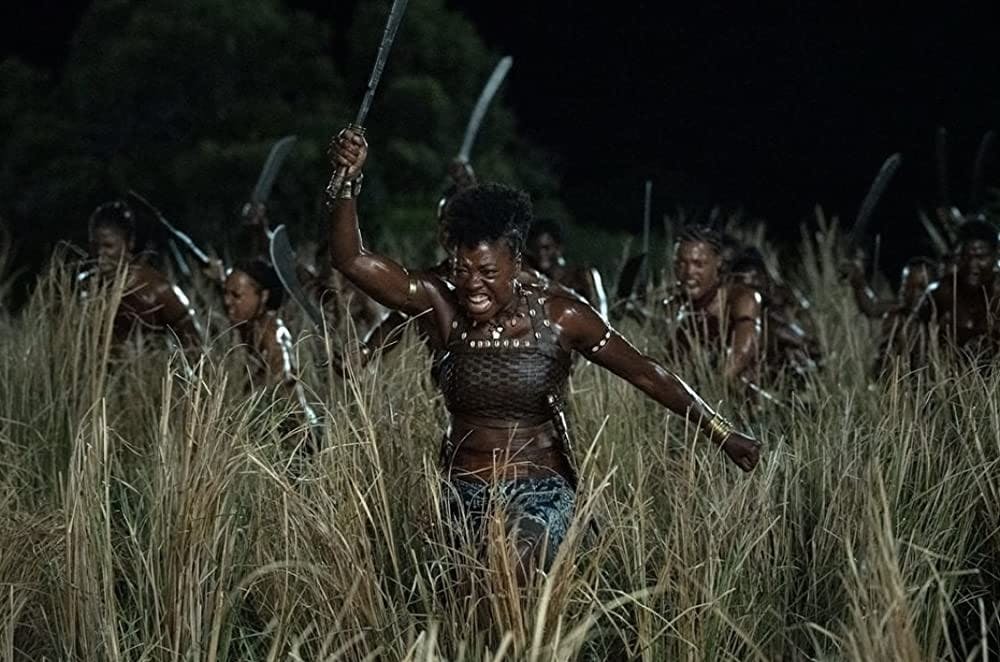EDITOR'S NOTE: A previous version of this article reported that Spike Lee has never been nominated for "Best Director" at the Academy Awards. This has since been changed to include his nomination in 2019 for BlacKkKlansman.
Casual and hardcore movie fans waited with bated breath on Tuesday, Jan. 24 to see what films would garner nominations for the 95th annual Academy Awards: would we see a best director nod for Gina Prince-Bythewood for “The Woman King?” or maybe Jordan Peele for “Nope”? Could Keke Palmer break through and grab a Best Supporting Actress — or even Best Actress — nomination?
The answer was no. Instead, not a single Black artist was nominated in any of the major categories — Best Director, no, Best Lead Actor, no, or Best Lead Actress, no. Films with largely Black casts were shut out of the Best Picture category as well. With films like “The Woman King,” “Nope” and “Till” — but particularly “The Woman King” — showing awards season promise, it raises the question of whether the Academy Awards will ever adequately represent what that year’s best films truly were.
Let's face it: the Best Picture nominees for this year are anything but representative of this year’s best. It’s extraordinarily difficult to place any sort of consistent measure, from box office to critical consensus, on how these films were nominated without including the films listed above.
Let's start with box office numbers: “Top Gun: Maverick,” “Avatar: The Way of Water,” “Elvis,” “Everything Everywhere All at Once” and — ranked at 1st, 4th, 13th, and 27th, respectively — all made waves for their stellar box office performances. The “Avatar” sequel now sits comfortably in the top-ten highest-grossing films of all time and “Everything Everywhere” is A24’s highest-grossing film — a big win for lower-budget productions and the Asian American and Pacific Islander community.
If this is our gauge, where is the film ranked 14th for domestic box office earnings for 2022, “Nope?” Or, perhaps, number 29, “The Woman King?” Heck, while we're at it, where is number two: “Black Panther: Wakanda Forever,” one of three films that actually surpassed “Avatar” in terms of domestic box office earnings? Clearly these films demonstrated their money-making potential.
But in the age of streaming, box office numbers aren’t everything, proven by Netflix’s nomination for “All Quiet on the Western Front.” Unlike box office numbers, streaming numbers aren’t widely available — this would be a very unreliable statistic to base the best films of that year on, especially considering the Oscars’ theater release requirements requiring at least 15 days in theaters for consideration.
Maybe it’s a pure quality ranking, then. Perhaps these films didn’t garner the same critical reception as widely-acclaimed nominees “The Banshees of Inisherin,” “The Fablemans” or “Women Talking.”
Well, no. “The Woman King” currently sits at 94% on Rotten Tomatoes (higher than “The Fablemans”) and 77 on Metacritic (one point below “Women Talking”). Similarly, “Nope” currently has an 83% on Rotten Tomatoes (higher than Palme d’Or winning and Best Picture nominee “Triangle of Sadness”) and a 77 on Metacritic. “Till” actually has a higher Rotten Tomatoes percentage (98%) than every Best Picture nominee this year despite earning a total of zero nominations — an immense oversight, according to this metric.
Of course, any cinephile — or really anyone with common knowledge on film — could have told you that any of these arguments were dead on arrival. That’s because the real answer does not present itself in the form of a percentage or box office earning.
Take for example Spike Lee. Spike Lee has only been nominated once for best director (in 2019 for "BlacKkKlansman") despite having been established as one of the best directors of all time. Why? Because his films challenge the structure and systems that organizations like the Academy Awards are built on.
Films like “Nope” and “The Woman King” are acts of defiance aimed at demonstrating to Hollywood that critics and audiences want films that either focus on Black people or that feature Black people in front of or behind the camera — usually both. But Hollywood and the Academy Awards have yet to reckon with their own history of white supremacy, and until that happens, films that challenge and defy those structures will continue to be shut out.
Get content from The Daily Lobo delivered to your inbox
John Scott is the editor-in-chief at the Daily Lobo. He can be reached at editorinchief@dailylobo.com or on Twitter @JohnSnott






